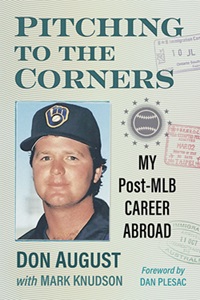Strike 3: “You make this show. Goodnight everybody.”
That’s how the late, great Irv Brown would sign off every night. And he meant it. Listeners who became callers to the show were essential to the Irv and Joe radio program. Having basically invented the genre, they bucked the conventional radio show plan, which was for the host to spend the first segment setting up the issue that would be discussed that day and then having callers react to the host’s opinion. Not Irv and Joe. It was all off the cuff.
Of course Joe Williams would have something on his mind when he arrived that day, so it was easy to get things started. And the callers, a lot of regulars with a few “long time listener first time callers” mixed in, could take things another direction if they chose to. And the well-versed and knowledgeable hosts would be ready for anything.
At one point not very long ago, the Denver market had more full-time and part-time sports talk stations than any other market in the country. Some tried to follow the Irv and Joe model as closely as they could. But none could ever match the chemistry and consistency of the Irv and Joe radio program.
Part of that is because callers have become all but extinct. Today’s local sports talk shows are much more focused on the opinions and story telling of the hosts, while “call screeners” have been replaced by show producers who read through text messages and relay a select few to the hosts to get their response.
It’s not the same. The back and forth between an irate Broncos fan who wanted to light up Joe for his latest less-than-flattering take on John Elway, and Joe’s retort to that caller made for lively and daily afternoon entertainment. It also made other listeners want to grab their telephones and chime in themselves.
While there were plenty of callers who failed to add much to the program, those callers who did, and could engage the hosts in an often fiery manner did make the show.
With so many media outlets today either partnering with or totally controlled by sports teams, pointed criticisms of the home team have become few and far between. Hosts are often handcuffed, not free to say how they really think or feel about the shortcomings of the team their station is in bed with. Either that, or they themselves are now employees of the team and thus under a semi-gag order.
It’s a radio landscape that would actually make a show like Irv and Joe very rare, and thus all the more popular today.
Sadly, we lost Irv Brown on the morning of Super Bowl Sunday back in 2019. He’d quietly battled health issues for a couple of years, not letting anyone, even his long-time radio partner, know exactly how serious the issues had become.
“Irv would never admit it,” Williams reflected. “Irv was a guy that he’s gonna show up, if he’s dying, he’s going to show up and do the show, then he’ll go home and die. That’s how Irv was.”
When he got the call that Sunday morning, Joe was shocked.
“I couldn’t believe it really,” Joe recalled. “The Irv I knew was indestructible. He always bounced back.”
When Irv Brown passed, he took old-school sports talk radio with him. Joe stayed on the air with other co-hosts for a short while, but “It was just something to do. It wasn’t any fun. My wife just wanted to get me out of the house.”
He and his late partner are missed. Their “tree” of producers and hosts has a whole lot of branches that are still growing and blossoming.
There are plenty of really good, talented people who fill the local radio airwaves these days, even while information is coming at us in vastly more varied ways. Joe, now 80 years old himself, watches a lot of football, but doesn’t listen to the radio much anymore.
And he’s never listened to a podcast.


